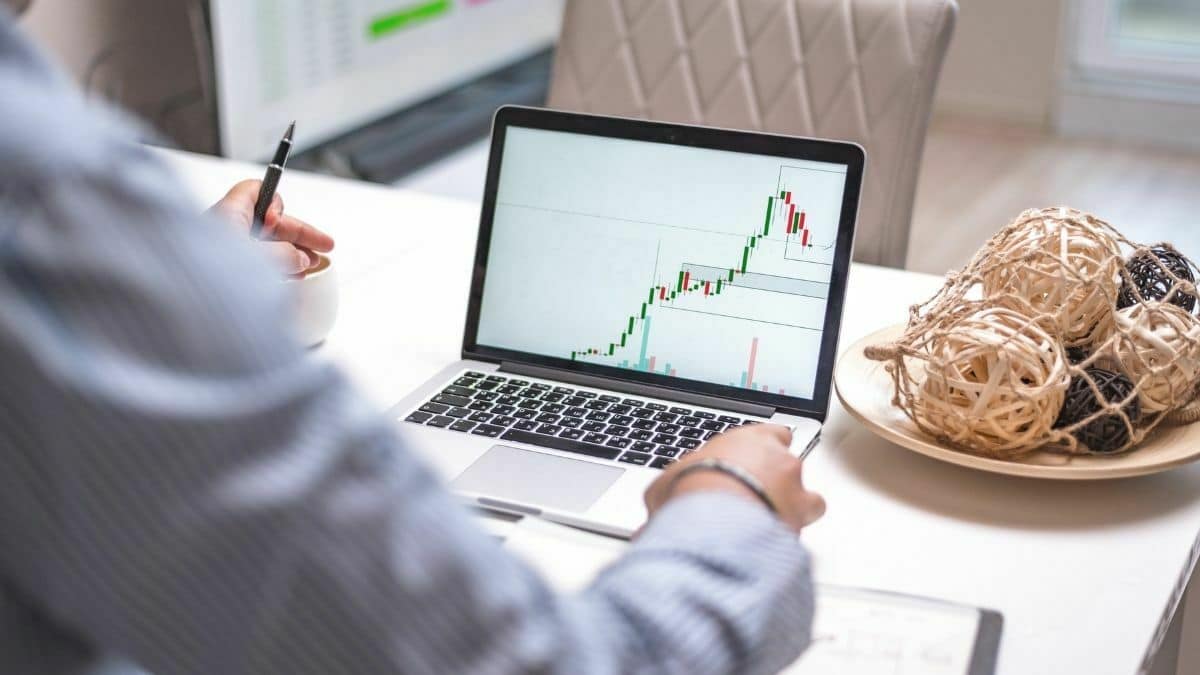The following is an excerpt from Jack D Schwager’s book, The New Market Wizards, that has been condensed. I strongly advise all active traders to read this book. Following are Key Points From The Market Wizards book:
1. First and foremost before knowing key points from the market wizards
Are you sure you want to trade? It’s not uncommon for people who think they want to trade to find out they don’t.
2. Investigate Your Motives
Why do you want to trade in the first place? Did you say you were ecstatic? Then don’t waste your money on the stock market; instead, go on a roller coaster or try hand gliding.
The market is a strict disciplinarian. To win, you must do almost everything correctly. If you have parts of yourself pulling in opposite directions, you’ve already lost the game.
3. Adapt Your Trading Strategy to Your Personality
It is critical to select a method that is compatible with your personality and level of conflict.
3. Have a Competitive Advantage
Even with the best discipline and money management skills in the world, you can’t win without an advantage. If you don’t have a competitive advantage, all your money management and discipline will do is ensure that you will bleed to death. By the way, you don’t have an edge if you don’t know what it is.
4. Create a Method
You need a method to gain an advantage. The type of method isn’t important; having one is—and, of course, the method must have a competitive advantage.
5. It Takes A Long Time To Develop A Method
Trading success is rarely achieved by taking shortcuts. Developing your own strategy necessitates research, observation, and consideration. Expect the process to take a long time and a lot of effort. Expect a lot of dead ends and failures before you find a profitable trading strategy that works for you. Keep in mind that you’re up against tens of thousands of professional players. Why should you strive to be better? There would be a lot more millionaire traders if it were that simple.
6. Hard Work vs. Skill
In general, exceptional performance necessitates both natural talent and hard work in order to reach its full potential. Hard work may provide proficiency, but not excellence, if the innate skill is lacking.
Anyone can become a net profitable trader, but only a select few are born with the ability to become supertraders! As a result, teaching trading success may be possible, but only up to a point. Make sure your objectives are attainable.
7. Trading should be simple and painless
Hard work refers to the preparation process – the necessary research and observation to become a good trader – rather than the actual trading.
“Whenever there is effort, force, straining, struggling, or trying in trading, it is wrong, just as it is in archery. You’re out of step with the market; you’re out of tune. The ideal trade is one that does not necessitate any effort.”
8. Risk Management and Money Management
Even more important than the trading method is money management. Never put more than 5% of your capital at risk in any trade. Before you enter a trade, decide where you want to exit. If you lose a predetermined percentage of your starting capital (say, 10% to 20%), take a break, analyze what went wrong, and wait until you are confident and have a high-probability idea before you resume trading.
9. The Trading Strategy
Trying to win in the markets without a trading strategy is akin to attempting to build a house without blueprints – costly (and avoidable) errors are almost certain. A trading strategy is simply a personal trading strategy that includes specific money management and trade entry rules.
Discipline
The word “discipline” was probably the most frequently used by the exceptional tradespeople I spoke with. The importance of discipline can be explained in two ways.
- It is a requirement for maintaining effective risk management. You’ll need discipline to stick to your methods and choose which trades to make without second-guessing yourself.
- Finally, keep in mind that you will never be immune to bad trading habits; the best you can hope for is to keep them hidden. They will return as soon as you become lazy or sloppy!
10. Recognize that you are accountable.
YOU ARE RESPONSIBLE FOR YOUR OWN RESULTS, whether you win or lose. I’ve never encountered a successful trader who blamed his losses on others.
11. The Importance of Independence
You must think independently. Making your own trading decisions is also part of it. Never pay attention to what other people have to say.
12. Confidence
Almost all of the traders I spoke with had unwavering faith in their ability to continue to win in the markets.
13. Losing is an unavoidable part of the game.
Great traders understand that losing is an unavoidable part of the trading game. This mindset is linked to self-assurance. Individual trades no longer seem horrible because exceptional traders are confident that they will win in the long run; they simply appear inevitable.
There is no more surefire way to lose than to be afraid of losing. If you can’t stand losing, you’ll either lose a lot of money or miss out on great trading opportunities – either flaw is enough to ruin any chance of success.
14. Time-Outs and a Lack of Confidence
You should only trade when you are confident and optimistic.
15. The Strong Desire to Seek Advice
The desire to seek advice reveals a lack of self-assurance.
16. Patience is a Key
The likelihood of success increases when you wait for the right opportunity. You don’t have to be in the market all of the time. Avoid being overly eager to trade in order to make up for previous losses. Trading vengeance is a surefire way to fail.
17. The Importance of Taking a Seat
Patience is necessary not only for waiting for the right trades, but also for sticking with trades that are profitable. A key profit-limiting factor is failing to profit adequately from correct trades.
“There’s a popular adage that goes something like this: You can’t go broke taking profits.” Many traders do go bankrupt in this manner. Professionals go broke by taking small profits, while amateurs go broke by taking large losses.”
18. Creating a Low-Risk Concept
A low-risk idea has the advantage of combining two essential elements: patience (because only a small percentage of ideas will qualify) and risk management (inherent in the definition). “Start a doughnut shop right next to the police station.”
The Importance of Using Different Bet Sizes It can be demonstrated mathematically that in any wager game with varying probabilities, winnings are maximised by adjusting the bet size in accordance with the perceived chance of a successful outcome.
19. Scaling In and Out of Trades (Scaling In and Out of Trades)
You are not required to enter or exit a position in a single motion. Scaling in and out of positions allows you to fine-tune your trades while also expanding your range of options.
It’s more important to be correct than it is to be brilliant. Instead of being a hero, consider winning. On a trade-by-trade basis, aim for consistency rather than perfection. Don’t Worry If You Appear Stupid
20. Don’t discuss your position.
Prudence isn’t always more important than action.
If your analysis, methodology, or gut tells you to enter a trade at the market rather than waiting for a correction, go ahead and do it.
21. It’s perfectly acceptable to catch a portion of the action.
Don’t let the fact that you missed the first major portion of a new trend deter you from trading with it (as long as you can define a reasonable stop-loss point).
Maximize your profits rather than the number of victories. The trade success rate is the least important performance metric, and it may even be inversely related to performance.
22. Disloyalty is a skill that can be learned
Never be a slave to a position. Profits Can Be Taken In Parts.
23. Allow yourself to be rewarded!
Hope is a four-letter word that means “hope for the future.”
For a trader, hope is a dirty word, not only when it comes to procrastinating in a losing position in the hopes that the market will recover, but also when it comes to hoping for a reaction that will allow for a better entry in a missed trade.
24. Don’t do what you’re accustomed to.
Do what’s right, not what’s convenient. If you have to win, you can’t win. When the market lets you off the hook so easily, think twice. There must be some very strong underlying forces in favour of the original position’s direction!
25. It’s a terrible thing to close one’s mind
Open-mindedness appears to be a common trait among successful traders. The Markets are an Expensive Source of Excitement. Excitement is important for the image of trading, but it has nothing to do with trading success.
26. A Trader’s Relaxed State
It is the polar opposite of excitement if there is an emotional state associated with successful trading. Exceptional traders are able to remain calm and detached no matter what happens in the markets.
27. Stress should be identified and eliminated
Trading stress is a sign that something isn’t right. If you’re stressed, consider what’s causing it, and then take steps to solve the problem.
28. Pay Attention to Your Gut Feelings
Intuition is simply the accumulation of experience in the subconscious mind. Extraneous considerations (e.g., one’s current market position, a reluctance to change a previous forecast) can compromise the objectivity of market analysis done by the conscious mind. The subconscious, on the other hand, is unaffected by such limitations. Regrettably, we don’t have easy access to our subconscious thoughts. When they manifest as intuition, however, the trader must pay attention. “The key is to distinguish between what you want to happen and what you know is going to happen.”
29. The Love of the Endeavor and the Mission of Life
Many traders believe that trading is what they were born to do – that it is their life’s mission.
30. The Components of Success
The six key steps to success as outlined by Faulkner
incorporating both “toward” and “away from” motivation; pursuing full capability plus as a goal, with anything less being unacceptable; dividing potentially overwhelming goals into manageable chunks, with satisfaction gained from each individual step; focusing entirely on the present moment – that is, on the single task at hand rather than on long-term objectives; Taking personal responsibility for achieving goals (rather than relying on others); and comparing oneself to oneself in order to track progress
The basic tasks required to become a successful trader.
- Create a sound analytical methodology.
- This methodology can be used to create a reasonable trading strategy.
- Create rules for this plan that include money management strategies.
- Back-test the plan for a long enough period of time.
- So that you stick to the plan, practise self-control. You can’t have the best plan in the world if you don’t put it into action.
- Markets can be beaten because prices are nonrandom.
Bottom Line – Key Points From The Market Wizards
“That’s probably why they’re professors and why I’m making money doing what I’m doing,” Trout says of academics who believe market prices are random. These exceptional traders have demonstrated that it is possible!
Keep your trading in context. Follow these Key Points From The Market Wizards and get success.
Trading isn’t all there is to life! Thanks for reading Key Points From The Market Wizards.
Also Read
A Good Plan For Trading In Stock Market


